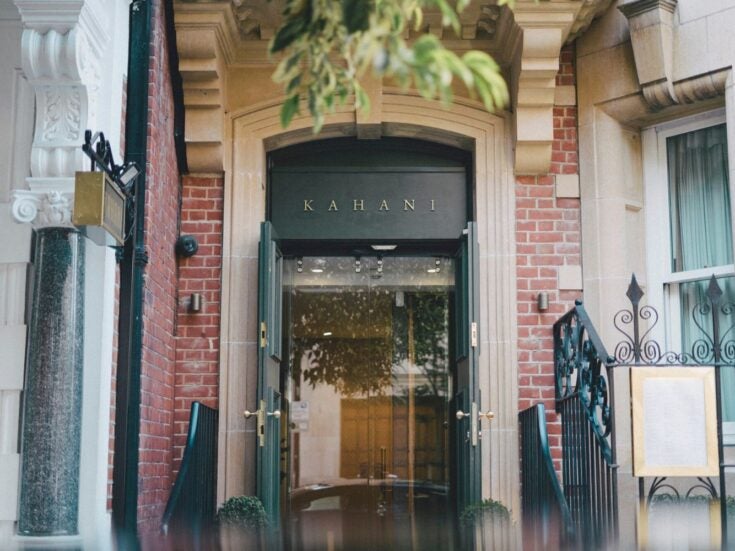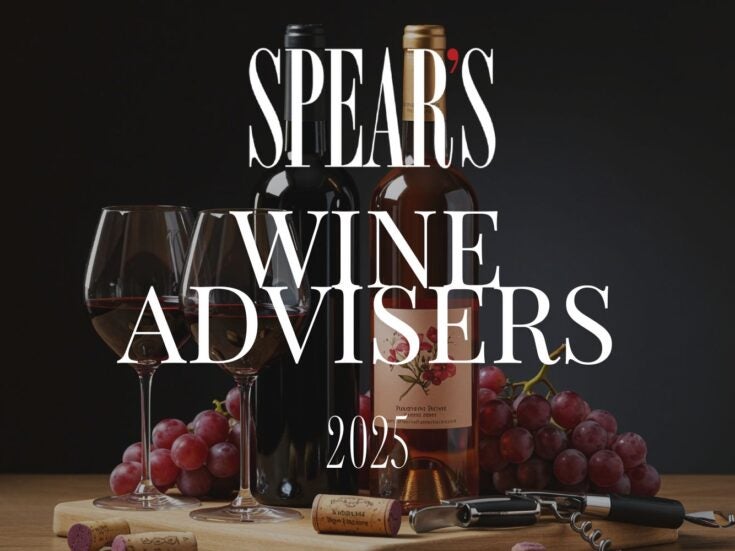

Waney Vidi Vici
Arjun Waney is le grand fromage behind La Petite Maison, as well as Roka and Zuma. Now he’s raising the profile of his Mayfair portfolio with two new restaurants. What will Richard Caring make of all this, Joe Warwick asks him
YOU DON’T HAVE to be a multimillionaire to own a restaurant in Mayfair, but increasingly it seems to help. The restaurant scene in central London’s most affluent neighbourhood is being carved up like never before. Much of it is being done by Richard Caring, the rag-trade entrepreneur turned restaurateur who has been busying himself with acquiring an empire of restaurants and clubs, the epicentre of which is Mayfair. Like in Monopoly, when it comes to owning restaurants Mayfair is still the square that everyone wants to occupy.
Caring has some competition when it comes to taking over Mayfair. You’ll most likely have heard of Marlon Abela, who writes about fine wine for Spear’s, owner of Morton’s, Umu and the Greenhouse. But more recently the battle for the unofficial title of Restaurateur Mayor of Mayfair has come from elsewhere.
Arise Arjun Waney, the Indian multimillionaire who made his fortune in furniture in the States and has, compared with Caring and Abela, until recently kept a relatively low profile in Mayfair. It’s only in the last quarter of 2011 that he’s added to his Mayfair portfolio, which previously consisted solely of La Petite Maison, the phenomenally successful offshoot of the celebrated Nice original, opened in 2007.
His involvement in September’s relaunch of the Arts Club on Dover Street, alongside new showbiz pal Gwyneth Paltrow, and the recent opening of the Mediterranean-inspired Aurelia, on the Cork Street site, previously the Balls Brothers’ Mulligans of Mayfair, has made him impossible for Mayfair watchers to ignore. In the spring he’ll add to that portfolio by opening Banca, an Italian inspired by Portofino and Ravello, on North Audley Street, and an ambitious Peruvian at 118 Piccadilly, serving ceviches alongside meat and fish from a hickory-fired grill, currently called Pisco, having previously had the working title of Villa Rosa.

He worked in the background to take Zuma and Roka, the two modern Japanese restaurants created in Knightsbridge and Fitzrovia respectively by chef Rainer Becker, to Asia, the Middle East and the US. The original branches remain two of London’s most successful restaurants.
SAT IN HIS sweatpants in his Knightsbridge apartment, ahead of his daily yoga session, a rather sprightly 72, he’s proud of what has been achieved, in particular at the wildly popular Zuma, which was opened back in 2002 in partnership with Divia Lavani (now Cadbury) and Becker. ‘How many reservations on average for each night do you think we still have to turn down?’ he asks. His answer of 127 is a favourite statistic, I can tell.
The way he tells it, his initial involvement in restaurants, via Zuma and Roka, was unplanned. He made his fortune in the Sixties and Seventies via the furniture chain Pier 1 Imports, and his previous interest in the restaurant industry had extended to unsuccessfully trying to buy an Oakland barbecue joint where he was rather fond of the ribs in the Seventies (‘The owner wouldn’t sell — he said he wouldn’t know what to do with himself if he did,’ he recalls), and turning a tidy profit by building up and selling on a French bistro brand in San Diego in the Eighties.
These days there’s much more to Waney’s interest in restaurants than pure venture capitalism. ‘I now like getting involved in the creative side of things, which is something I never thought I’d be interested in,’ he says. ‘I think having seen how well La Petite Maison worked has made me that way.’
Waney credits Becker with introducing the idea of shared plates to La Petite Maison. It’s become a trademark of his restaurants, a policy that continued at the Arts Club and Aurelia and will be there when Banco and Pisco open.

Unlike Roka and Zuma, LPM (as he likes to abbreviate it) was Waney’s idea. Opened in Nice in 1988, and today supposedly one of Nicolas Sarkozy’s favourite restaurants, it became a firm favourite of Waney’s when visiting his grandchildren in the South of France — so much so that although he didn’t buy it, he licensed the name and opened a branch in London. More recently he’s opened branches in Beirut and Dubai. He’s proud of a licensing deal that means ‘no one else can open a branch of La Petite Maison anywhere in the world — only us’.
HE DOES FIND time for another hobby, however. ‘I am 72 years of age and my main purpose in life now is to spend most of my money trying to eradicate blindness in India,’ he says. Following a meeting with Mother Teresa in 1987 he immediately set about helping the poor in his homeland by creating the agency Mission for Vision, which supports 110,000 sight-saving eye operations in India and other developing countries every year.
Meanwhile, back in Knightsbridge, I raise the subject of Richard Caring: does he think his own recent expansion into Caring’s home turf is seen as competition by the man once dubbed ‘the Lex Luthor of Mayfair’? Waney sits back in his armchair and smiles. ‘I don’t think he sees anyone as competition. He’s got lots of trophy assets and he’s very hands-on and getting more hands-on every day. His form of serving food and mine are totally different. We’re different.
‘I can honestly say there’s no restaurant of Richard Caring’s that I’d like to buy — not one,’ he says. ‘Apart from the guy that owned that barbecue joint, the only person in this entire world I’ve ever wanted to buy a restaurant from was Gordon Ramsay.’ It was Maze — shared plates again.
Waney obviously likes to share. The way he’s expanding into Mayfair, let’s hope Richard Caring feels the same way.
Joe Warwick writes about restuarants. He’s currently working on Where Chefs Eat






